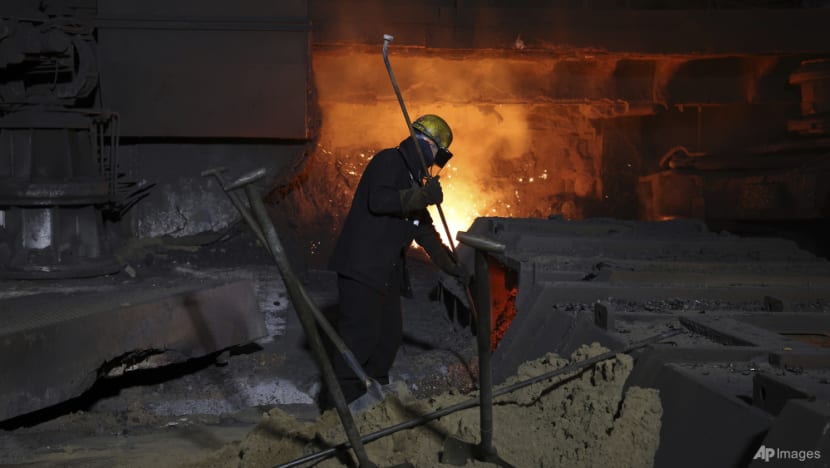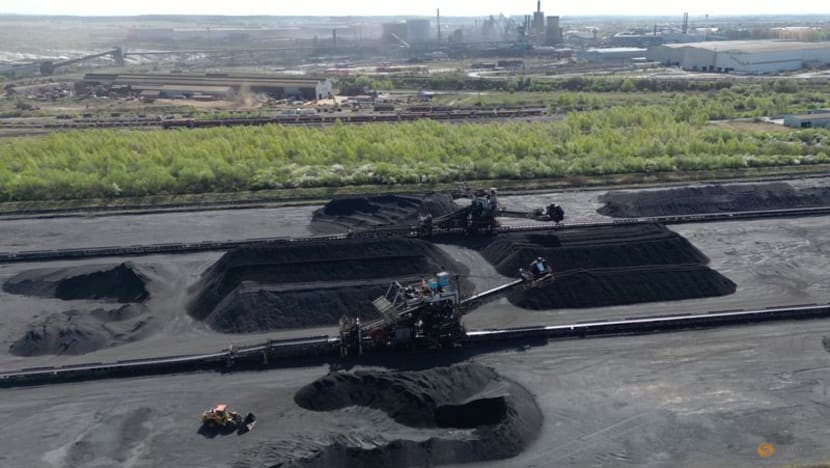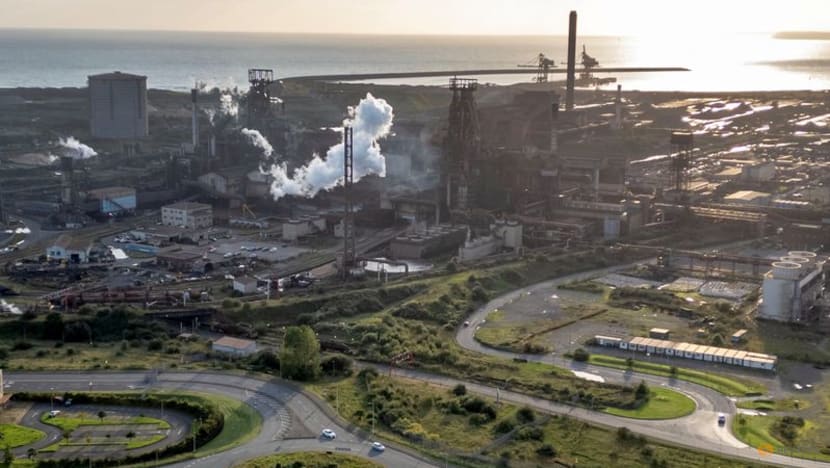UK’s steel industry struggles for survival despite tariff deal with US
Major steel producer British Steel was taken over by the government in April, amid trade uncertainty and global oversupply of the metal.


This audio is generated by an AI tool.
LONDON: Two months ago, major steel producer British Steel nearly collapsed before it was taken over by the United Kingdom’s government in a last-ditch effort to rescue the company.
This came after the firm’s Chinese owner Jingye Group announced that its two blast furnaces – the last of their kind in the UK – would close for good in the English industrial town of Scunthorpe, putting hundreds of jobs at risk.
The government’s move underscores the deepening strain on Britain’s steel industry. It is grappling with global oversupply and uncertain trade conditions – particularly in its vital export market, the United States.
America is the UK’s second-largest steel export market, worth over 400 million pounds (US$540 million) a year.
Despite the British government signing a trade deal with Washington last month that promised to bring tariffs down to zero, British steelmakers are still paying a 25 per cent levy on exports to the US. This rate will remain until at least Jul 9.
The deal has temporarily spared the UK from the even steeper 50 per cent tariffs imposed on other nations, which kicked in on Wednesday (Jun 4).
But industry players in Britain said they still face uncertainty.
“There is no end in sight of when those tariffs are going to be scrapped, because we still don't know the timetable, the criteria of getting that exemption, the hoops we need to jump through, and whether all steel producers in the UK will be exempt or not,” said Gareth Stace, director general of industry association UK Steel.
PRODUCTION AT LOWEST LEVEL
This uncertainty is particularly damaging for a sector already under huge strain.
Many plants in England have not produced steel for nearly a year due to a lack of money to buy materials.
UK steel production has fallen to its lowest level since the 1930s, prompting authorities to promise US$3.4 billion to help bridge the investment gap and turn the tide for the industry.
However, additional billions of dollars in private funds are needed – a hard sell when the global trade regime has been changing radically from month to month.

Meanwhile, cheaper steel from Asia, Europe and the US continues to flood the British market, where domestic producers now account for just 35 per cent of UK steel demand.
Tom Evans, head of public affairs at UK's biggest steelmaker Tata Steel, told CNA that the overcapacity has become a perennial challenge for all stakeholders across the world.
“At the moment we've got an overcapacity of about 500 to 600 million tonnes … the UK makes around 6 to 7 million tonnes of steel a year. So we’re a drop in the ocean in terms of global steelmaking,” he noted.
“But that kind of overcapacity means that the pricing (and) the trading conditions are really challenging for UK steel makers.”
GOING GREEN
Tata Steel has already shut down its blast furnace operations in the UK and ended production of virgin steel – the traditional method of turning iron ore into new metal.
The company is now turning to electric arc furnaces, which melt down scrap steel to create new products using renewable electricity.
That will help to meet government targets for a lower-carbon steel industry and construction company demand for “greener steel”.

“We're quite fortunate in the UK (which) generates over 10 to 12 million tonnes of scrap a year. We want to keep some of that in the UK and remake that into steel,” Evans said.
He added that the company needs “a lot done in the next two years” to get its electric furnaces up and running.
Electric arc furnaces can dramatically reduce the industry’s carbon footprint. Recycling just one tonne of steel saves about 1.4 tonnes of iron ore and nearly a tonne of coal, according to British steel construction firm Elland Steel.
The technology also allows producers to power their operations with wind, solar or other renewable sources.
Like Tata, British Steel was offered hundreds of millions of dollars in government help to make the green transition, but its owner rejected the offer.
The government’s new ownership of British Steel has now reopened the possibility, though it is looking to find a buyer for the company in the long term.
London is due to publish a “steel strategy” in the coming months, recognising domestic production of steel as essential for economic independence and national security.
But for now, the future of British Steel remains symbolic of the industry’s broader challenge: Creating a viable, green and competitive steel industry while navigating a fast-changing world.
“What I want to see in the UK is a strong economy that needs a lot of steel - more steel than it needs at the moment – (and) that we are supplying the vast majority of that steel,” said UK Steel’s Stace.














